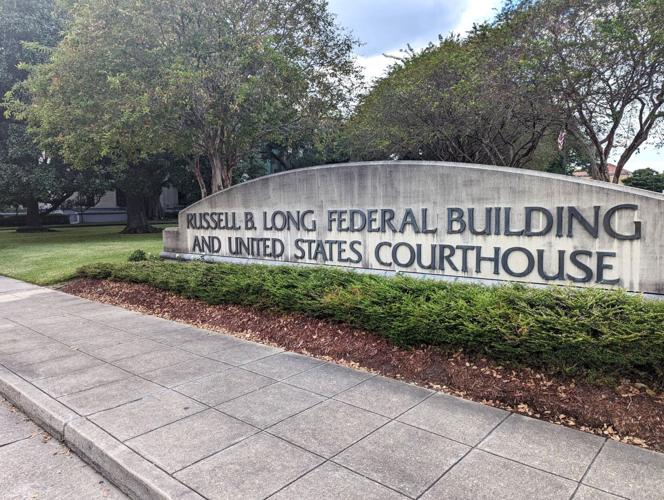A Baton Rouge doctor whom federal prosecutors labeled a "drug dealer in a white coat" faces decades behind bars after being convicted of improperly prescribing large quantities of oxycodone for cash.
Randy Lamartiniere, 64, faced 28 counts of unlawful distribution of controlled substances. He looked at the floor and shook his head in disbelief as jurors returned guilty verdicts on 20 of them. U.S. District Judge Brian Jackson set sentencing for March 30.
Lamartiniere faces up to 400 years total — 20 years on each count — though under federal sentencing guidelines he likely would be sentenced to less. He was allowed to remain free until at least Jan. 19, when the next court hearing is scheduled.
Baton Rouge police arrested Lamartiniere in January 2016 and charged him with more than 30 drug distribution charges, but federal investigators subsequently took over the case and the matter — with 55 counts — went before U.S. District Judge John DeGravelles.
DeGravelles presided over a four-day bench trial in December 2021, but as he was preparing a ruling his son took a job at the Baton Rouge law firm that had a lawyer representing Lamartiniere. DeGravelles recused; after a mistrial was declared, Lamartiniere opted to have a jury hear his second trial.
The panel late Friday found that Lamartiniere, 64, had prescribed thousands of highly addictive opioid pills to patients, many of whom showed no signs of pain, between March 2015 and January 2016.
Prosecutors told jurors the doctor ignored red flags and kept writing prescriptions for patients who displayed obvious signs of opioid addiction. The patients often paid a fee that ranged from $100-$300 per visit.
“This was way outside the bounds of professional behavior and he should have known that,” Assistant U.S. Attorney Alan Stevens said during his closing arguments.
Lamartiniere earned a salary of $195,000, according to court testimony. Stevens said the veteran physician racked up too many bills and fell into financial straits after he bought a new house and car in late 2014. Around the same time, Ochsner Health Center clinic on Jefferson Highway fired him because of how excessive his prescriptions had become, according to the court record.
Government attorneys said Lamartiniere wrote prescriptions for “member” patients who paid him primarily in cash, even after the Louisiana State Board of Medical Examiners issued an emergency order in November 2015 suspending him and stripping him of his license to prescribe controlled substances.
Lamartiniere claimed details of his suspension weren’t clear. Seven counts for which he was convicted covered prescriptions written in January 2016.
“There’s no doubt that knew he’d been stripped of his license. He just didn’t want to comply with the board’s order,” Stevens said. “The defendant didn’t care about the law and he believed he was above it. And he’s asking you to give him a pass because he went to medical school.”
The state medical board began investigating Lamartiniere in 2015 after receiving complaints that he was mishandling his prescriptions. At least one pharmacist had noticed a number of the doctor’s patients were refilling their pill supplies before their prescriptions ran out.
Dr. Cecilia Mouton, a retired director of investigations for the state medical board, testified that it was “fairly rare” for the state to take emergency action to suspend a doctor’s license, a disciplinary action she could only recall happening two or three times in her 20 years on the medical board.
Lamartiniere maintained he was only trying to help people who he believed were in real pain. Beau Brindley, the doctor’s defense attorney, insisted Lamartiniere prescribed the meds in “good faith.”
Lamartiniere prescribed one man more than 2,100 methadone and oxycodone pills over a 13-day span in August 2015. Another patient paid the doctor $300 for 30 hydrocodone pills and picked them up from his clinic the same day without an exam.
“That’s not medicine, that’s a drug deal,” Stevens said. “It looks a little different because it’s in a medical office. But that’s a drug deal.”
Lamartiniere, as part of his defense, showed jurors videos of his interactions with some patients, spending time with them and asking questions about their conditions for a prolonged period.
Brindley said that showed Lamartiniere was a caring physician performing his duties in earnest. Brindley suggested the Drug Enforcement Agency took advantage of Lamartiniere's gullibility by sending in undercover workers with fake injuries to build their case.
“Taking the patient at face value is not a crime,” Brindley told jurors during his closing arguments. “He was an old-school doctor trying to manage patients in a new age world. … He was trying, and trying makes him not guilty. There is no way to prove that he was not making an honest effort.”


